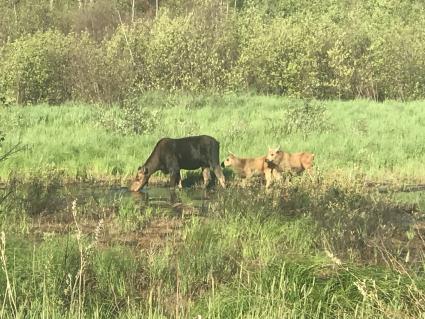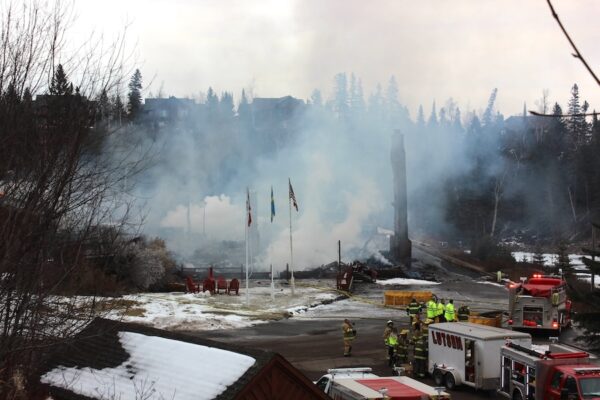Spring bear hunt in Grand Portage leads to reduction in moose calf predation
Wildlife researchers in Grand Portage continue to analyze data related to calf mortality in the region’s moose population.
Among the ongoing studies is one connected to moose calf predation from black bears.
Seth Moore is the director of biology and environment for the Grand Portage Band of Lake Superior Chippewa. He said in a recent WTIP interview (audio below) that bears have been a significant predator on moose calves in research at Grand Portage.
“We collared moose calves for several years and tracked survival and predation,” Moore said. “We discovered that bears and wolves were essentially taking most of the young moose in the population.”
In an attempt to reduce moose calf mortality from bears, Grand Portage enacted a spring bear hunt in 2016. The spring bear hunt is in addition to a fall hunt on the Grand Portage Reservation. In doing so, wildlife officials allowed for an increased bear harvest by approximately 20 percent per year, Moore said. As the data is coming in on how a spring bear hunt is impacting the moose calf mortality rates, Moore said he and other researchers were intrigued by the results.
“We reduced the bear predation on calves by 100 percent,” Moore said.
Wildlife officials in Grand Portage believe diversionary feeding by spring bear baiting could be contributing to the reduction on predation pressure on moose calves, Moore added.
The audio below is the full interview on WTIP.














